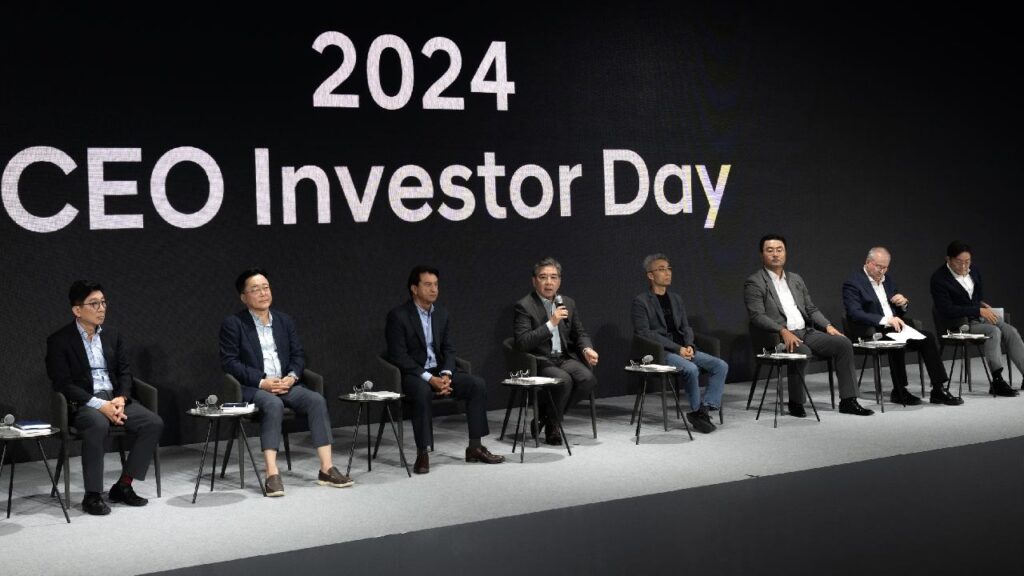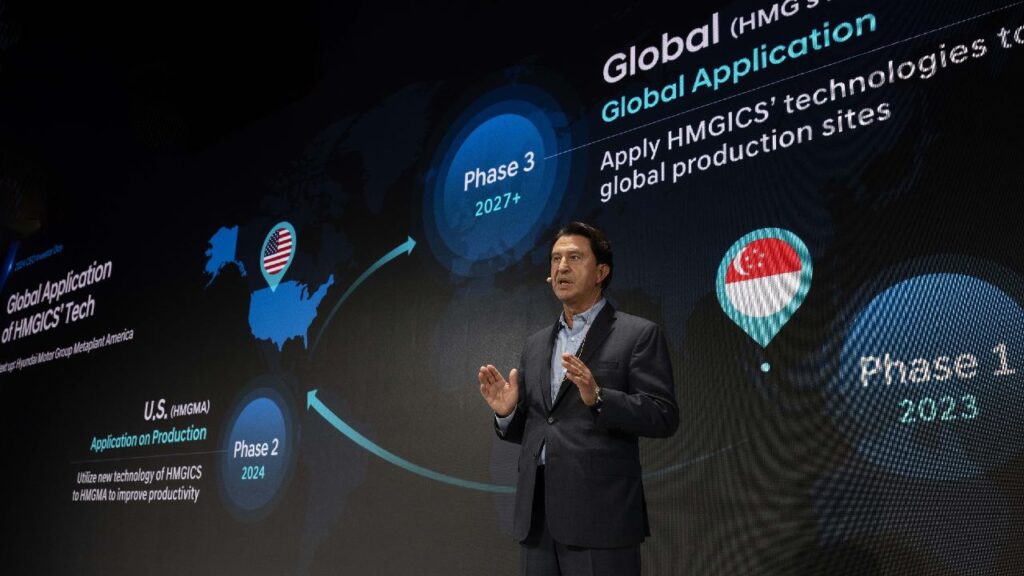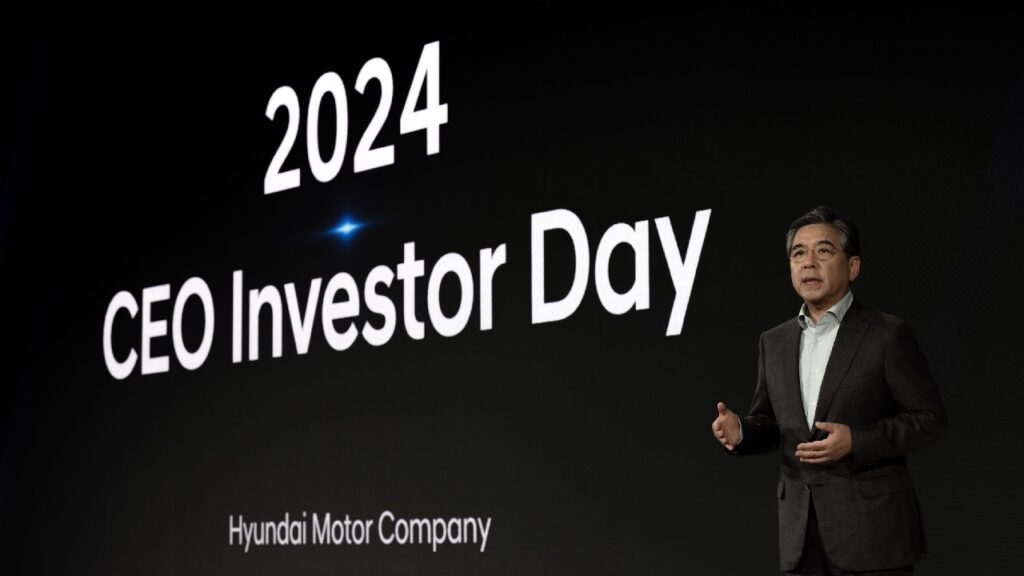The Korean auto giant unveiled a new “Hyundai Way” strategy with mid-to-long-term goals at 2024 CEO Investor Day.
Hyundai Motor Company shared its EV sales projections at the 2024 CEO Investor Day event. Plans pertaining to investments, battery technology, product portfolio, sales, etc., were highlighted. Arguably, the most intriguing aspect was the focus on hybrids and EREVs (Extended Range Electric Vehicles). These will serve as a bridge between ICE and a fully electric future. Unlike some other legacy carmakers, Hyundai is not dialling back its ambitions despite the recent industry-wide slowdown in EV sales.

You might also like: Hyundai And Kia Showcase Temperature Control Technology To Boost Efficiency
Hyundai EV Sales Projections
According to the official press release, the Korean car marque will expand its hybrid lineup from 7 to 14 models (including Genesis). In fact, just in North America, Hyundai wants to produce 690,000 hybrid cars by 2030. Note that it will utilize its Georgia plant for the manufacturing process along with EVs. Moreover, Hyundai even announced its next-generation TMED-ll hybrid system in production models. It will increase performance and fuel efficiency and make smart regenerative braking and V2L charging better.
Additionally, new EREVs will join the fleet to ensure a smooth transition to complete electrification. These two key announcements are a testament to the fact that it acknowledges the global slowdown in EV demand. This should serve as a great solution to keep the business strong in the meantime. Hyundai mentions that its EREVs will boast a driving range of over 900 km (560 miles) when fully charged. Mass production in the U.S. and China is slated to commence by the end of 2026.
Having said that, it is still not backing out from its ambitious plans with regard to battery electric cars. This is evident from its announcement of boasting 21 models in its global EV portfolio by 2030. Not just that, the global EV sales target is 2 million units annually by 2030. In total, the overall target is 5.55 million units by 2030. Hyundai continues to be bullish on EVs. Just for reference, the total overall sales in 2023 was 4.21 million.
Battery and Tech Announcements
Finally, the event also incorporated concrete strategies pertaining to battery technology. By 2030, Hyundai aims to keep using performance-based NCM (nickel-cobalt-manganese) and low-cost LFP (lithium-iron-phosphate) batteries. However, it wants to develop a new affordable NCM battery to provide a wider range of solutions. It will be an entry-level battery for large volumes. Using the ongoing improvements in battery energy density, the performance enhancements will be over 20% by 2030.
Turning the focus towards electronics and software of future Hyundai EVs, the car giant will undertake the development of SDVs (Software-Defined-Vehicles). This includes an SDV Pace Car which will arrive in the latter half of 2026. It will enable a new “mobility business” using AI and enhancing cybersecurity. In relation to this domain, Hyundai is also prepping a new Digital Cockpit and next-gen infotainment system based on the Android Automotive OS, which we will see in the first half of 2026. Hyundai also wishes to establish the foundry business to reach Level 4 or higher autonomous driving capabilities and become a technology supplier.

You might also like: Hyundai Ioniq 6 N Spotted For The First Time Ever
Learn Electric Cars Says
Hyundai clearly wants to stay ahead of the curve by offering solutions for every hurdle that grips the global EV industry at the moment. With its already massively successful product portfolio across the globe, it is in a position to call the shots. It is able to foresee the challenges and is ready to take the necessary precautionary measures right away. I must admit I am very excited to see how things pan out for the overall EV industry in general, and Hyundai in particular.


Pingback: Hyundai Ranks Highest Among Mass Market Brands For Innovation